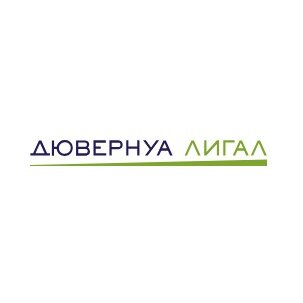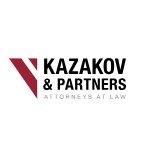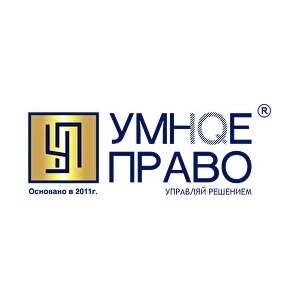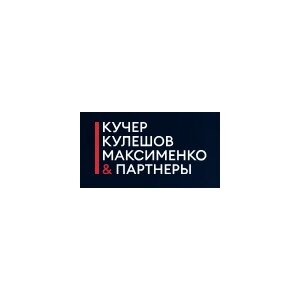Best Acquisition / Leveraged Finance Lawyers in Russia
Share your needs with us, get contacted by law firms.
Free. Takes 2 min.
Or refine your search by selecting a city:
List of the best lawyers in Russia
About Acquisition / Leveraged Finance Law in Russia
Acquisition and leveraged finance refers to funding arrangements used primarily for acquiring companies, often utilizing borrowed funds (leveraged finance) secured by the assets or future cash flows of the target business. In Russia, these transactions play a significant role in mergers and acquisitions (M&A), private equity deals, and corporate restructuring. The legal framework in Russia involves a combination of banking regulations, securities laws, foreign investment rules, antitrust legislation, and bankruptcy codes, making these transactions complex and subject to careful legal structuring and risk assessment.
Why You May Need a Lawyer
Engaging a legal specialist is crucial in any acquisition or leveraged finance transaction in Russia to ensure compliance with local laws and to mitigate risks. Common situations where legal advice is vital include:
- Structuring and negotiating acquisition finance transactions
- Assessing regulatory and licensing requirements for lenders and borrowers
- Conducting legal due diligence on the target company
- Drafting and reviewing finance, security, and guarantee agreements
- Managing cross-border elements and foreign currency regulations
- Resolving disputes related to loan defaults or contract breaches
- Advising on antitrust approval and other governmental consent requirements
- Protecting your interests in bankruptcy or insolvency proceedings
Given the complexity and the high stakes involved, experienced legal counsel helps safeguard your interests throughout the entire process.
Local Laws Overview
Below are key legal aspects of acquisition and leveraged finance in Russia:
- Banking and Lending Regulations: Lenders must comply with Central Bank of Russia rules, including licensing and reporting requirements. There may be restrictions on foreign lenders and the use of foreign currency loans.
- Collateral and Security: Russian law allows for various forms of security, such as pledges over shares, property, and bank accounts. Procedures for registering and enforcing security interests are strictly regulated.
- Corporate Authority and Approval: Internal corporate approvals are required for both the acquisition and the incurrence of significant debt or encumbrances, with additional considerations for public companies or companies with state participation.
- Currency Control: Cross-border finance transactions are subject to currency control rules, including notification and reporting obligations.
- Antitrust and Foreign Investment Laws: Acquisitions meeting certain thresholds require clearance from the Russian Federal Antimonopoly Service or the Governmental Commission for Control over Foreign Investments.
- Bankruptcy Risks: Strict rules on subordination, preference, and clawback apply in insolvency scenarios, impacting lender recovery prospects.
Frequently Asked Questions
What is acquisition finance?
Acquisition finance refers to the variety of funding arrangements used to facilitate the purchase of businesses or assets. This can include term loans, revolving credit facilities, bonds, or other financial instruments provided by banks or other lenders.
How does leveraged finance differ from traditional loans?
Leveraged finance typically involves higher levels of debt and risk compared to conventional loans. The loans are secured by the assets or shares of the target company being acquired and often involve more complex covenants and higher interest rates.
Are there restrictions on foreign banks providing acquisition financing in Russia?
Yes, foreign banks must comply with Russian banking regulations and may face additional registration or licensing hurdles. Some sectors may also have restrictions on foreign investment or lending, particularly those deemed strategic by the Russian government.
What types of security can be offered in Russian acquisition finance?
Common types of security include pledges over movable and immovable property, shares or participatory interests, receivables, and bank accounts. The validity and enforceability of these securities are subject to specific registration and documentation requirements under Russian law.
Do acquisition finance deals require antitrust clearance in Russia?
If the transaction value or the value of the parties’ assets exceeds certain thresholds, antitrust (competition) clearance from the Federal Antimonopoly Service is required. This applies to many significant acquisition finance deals.
How long does it typically take to close an acquisition or leveraged finance deal in Russia?
The timeline depends on the complexity of the transaction, regulatory requirements, due diligence, and negotiation of finance documentation. Generally, deals can take several months from initial discussions to closing.
Can Russian companies borrow in foreign currency for acquisitions?
While it is possible, there are currency control regulations regarding cross-border loans, restrictions on use of proceeds, and reporting obligations with the Central Bank of Russia.
What happens if the borrower defaults on the finance agreement?
The lender may enforce its rights under the finance agreement and security documents, which can include foreclosure on pledged assets. Russian law sets out strict procedures for enforcement, and local courts often oversee the process.
What role does due diligence play in these transactions?
Legal due diligence is essential to identify potential risks, such as existing liabilities, legal or regulatory issues, and defects in assets or shares offered as collateral. It helps inform decision-making and negotiation.
Are there special considerations for public companies or companies with state ownership?
Yes, acquisitions involving public companies or companies with direct or indirect state participation are subject to additional regulations, including disclosure obligations and restrictions on certain types of transactions. Specialized approvals or governmental consents may be required.
Additional Resources
If you are seeking information or assistance on acquisition or leveraged finance in Russia, consider the following resources:
- Federal Antimonopoly Service of Russia (FAS) - The authority overseeing antitrust and competition matters
- Central Bank of Russia - The regulator for lending, foreign currency transactions, and banking operations
- Ministry of Economic Development of the Russian Federation - Provides guidance on investments and corporate operations
- Russian Arbitration Courts - Handle disputes related to finance, security, and bankruptcy
- Professional associations for lawyers and bankers specializing in M&A and finance
Next Steps
If you require legal assistance with an acquisition or leveraged finance matter in Russia:
- Identify law firms or individual lawyers with proven expertise in acquisition and leveraged finance transactions
- Prepare detailed information about the planned transaction or legal issue to help your lawyer understand your objectives
- Discuss fee arrangements and the scope of legal services before engagement
- Engage in confidential consultations to address potential regulatory, financial, or operational risks
- Keep records of all communications and documents exchanged during the legal process
- Request updates on the progress of your matter and clarify any legal terms or procedures you do not understand
Legal matters in acquisition and leveraged finance can be complex, so working with experienced specialists will help safeguard your interests and ensure smooth completion of your transactions.
Lawzana helps you find the best lawyers and law firms in Russia through a curated and pre-screened list of qualified legal professionals. Our platform offers rankings and detailed profiles of attorneys and law firms, allowing you to compare based on practice areas, including Acquisition / Leveraged Finance, experience, and client feedback.
Each profile includes a description of the firm's areas of practice, client reviews, team members and partners, year of establishment, spoken languages, office locations, contact information, social media presence, and any published articles or resources. Most firms on our platform speak English and are experienced in both local and international legal matters.
Get a quote from top-rated law firms in Russia — quickly, securely, and without unnecessary hassle.
Disclaimer:
The information provided on this page is for general informational purposes only and does not constitute legal advice. While we strive to ensure the accuracy and relevance of the content, legal information may change over time, and interpretations of the law can vary. You should always consult with a qualified legal professional for advice specific to your situation.
We disclaim all liability for actions taken or not taken based on the content of this page. If you believe any information is incorrect or outdated, please contact us, and we will review and update it where appropriate.
Browse acquisition / leveraged finance law firms by city in Russia
Refine your search by selecting a city.
















